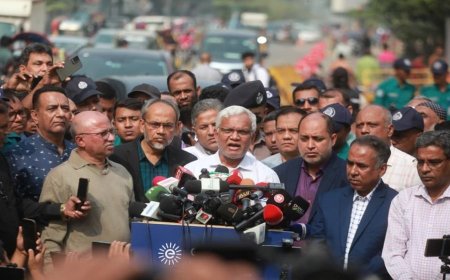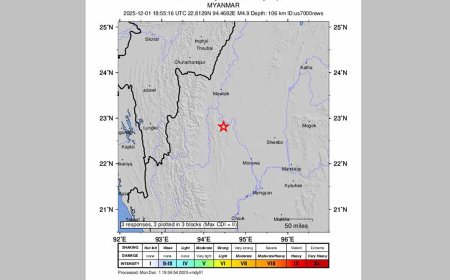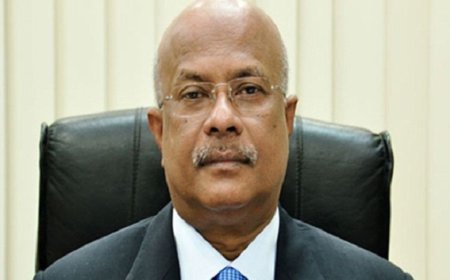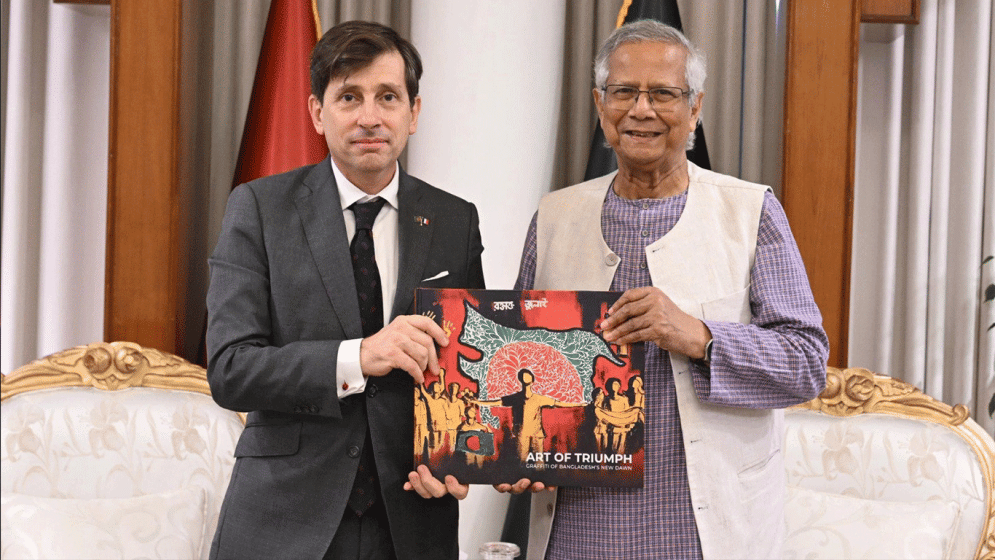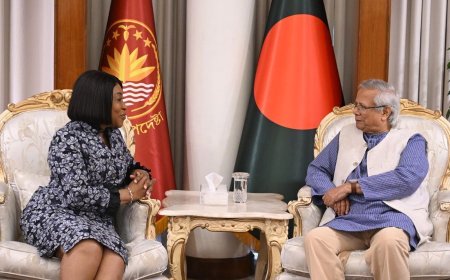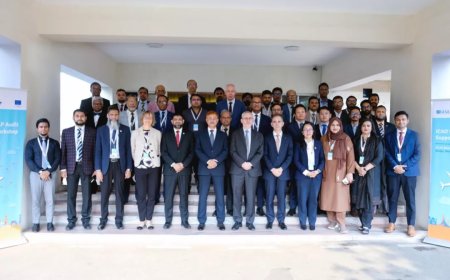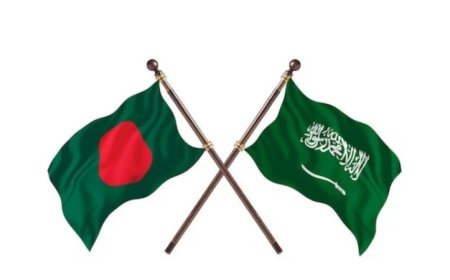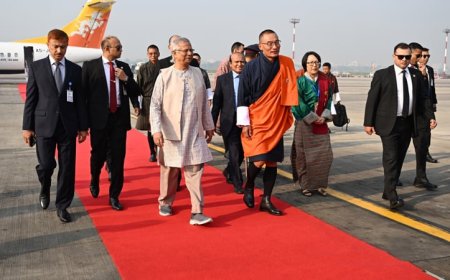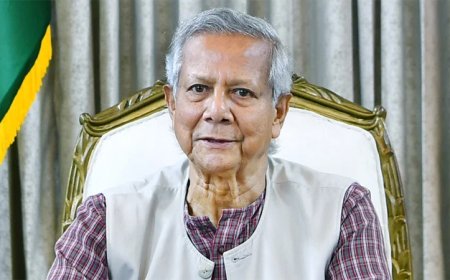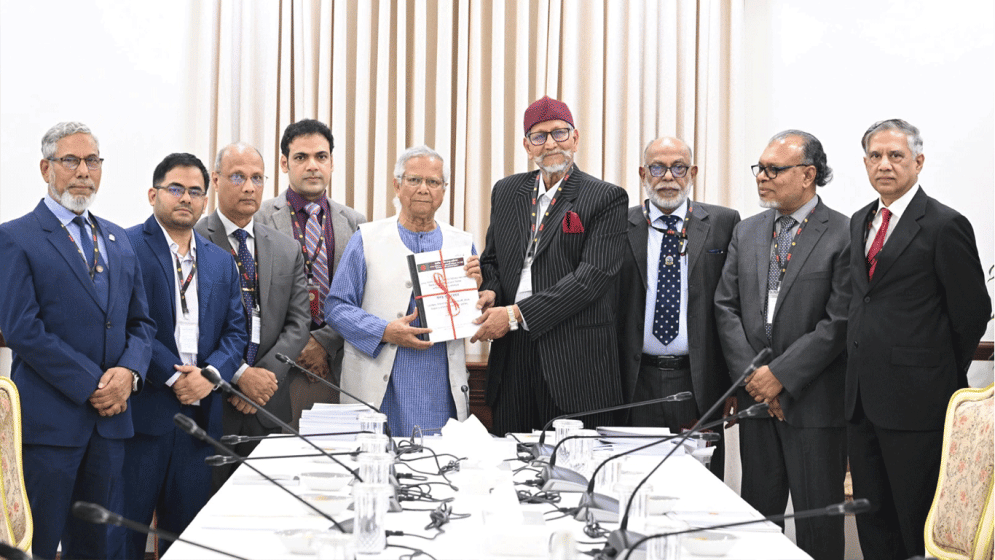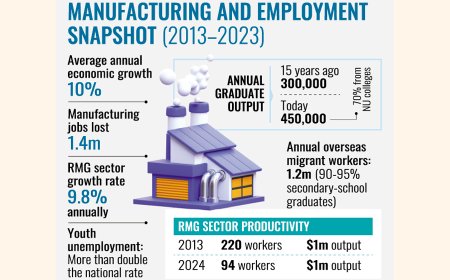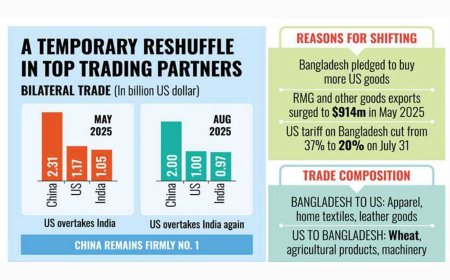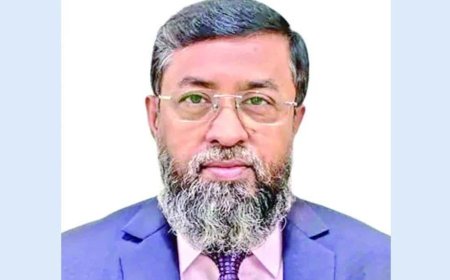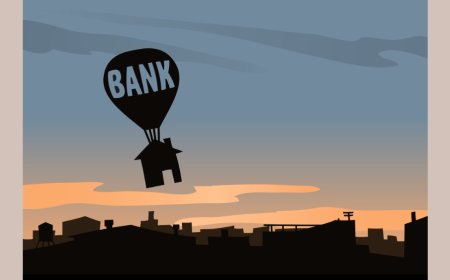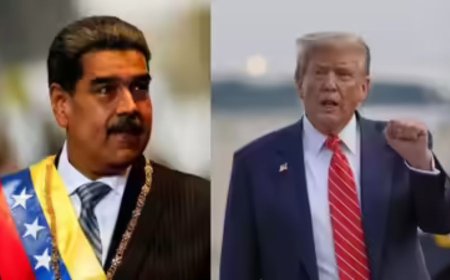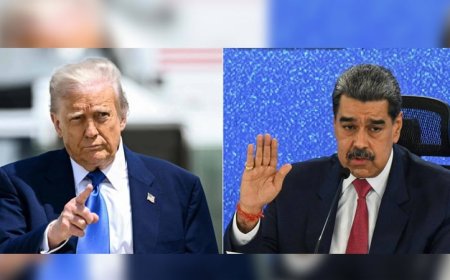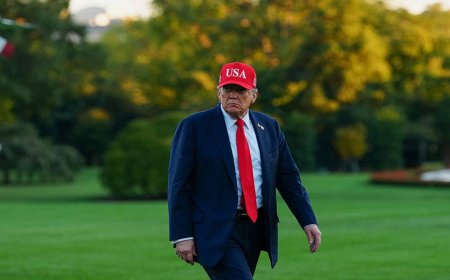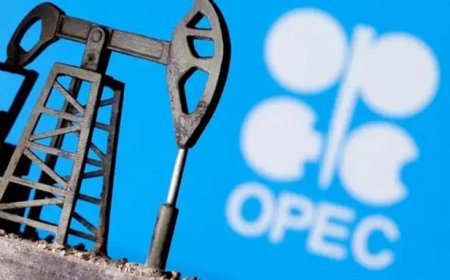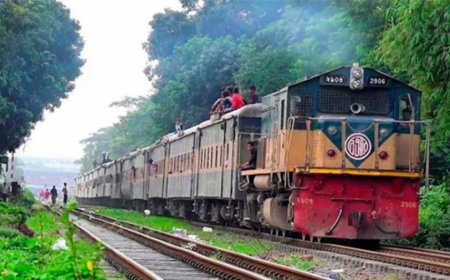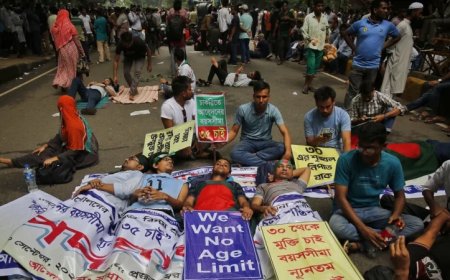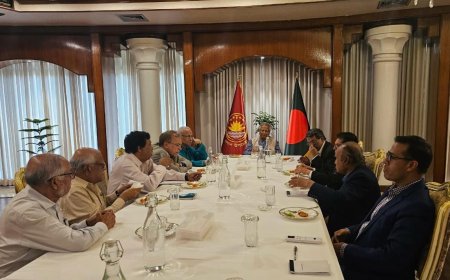Discussion on the 'refined' Awami League gains momentum externally, but not within the party
Discussion on the 'refined' Awami League gains momentum externally, but not within the party.
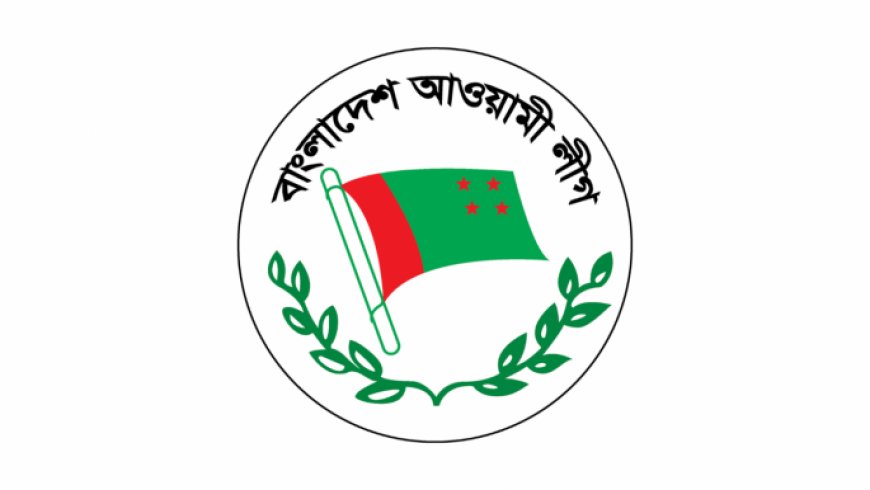
Speculation on a 'Refined Awami League' Grows, but Internal Discussions Remain Absent
Despite increasing speculation about a "refined Awami League," no discussions have taken place within the party regarding such an initiative, nor is there any indication of leadership changes.
Furthermore, the party’s exiled top leadership has not endorsed the idea, casting doubt on the credibility of such claims.
Sheikh Hasina, who was removed from power following the student-led mass uprising on August 5 last year, fled to India along with several party leaders. Since then, discussions have emerged about whether the Awami League would acknowledge past mistakes and undergo reforms.
However, instead of engaging in self-reflection, the party’s senior leadership has remained defiant, openly criticizing the interim government and leaders of the July Movement on social media. Conversations with party insiders suggest that its core leadership remains unchanged in its stance. Awami League leaders question who would be responsible for "refining" the party, as there is no indication that Sheikh Hasina plans to step down or sideline key figures. Some speculate that certain leaders within the country may attempt to reshape the party without her, but whether grassroots activists would support such efforts remains uncertain.
Party insiders suggest that with Sheikh Hasina and many top leaders currently in India, any restructuring would likely follow her directives. Any attempt to reform the party without her influence would likely face strong resistance from exiled leaders.
Social Media Speculation Fuels Debate
The debate over a "refined Awami League" intensified last Thursday when Hasnat Abdullah, Chief Organiser (South) of the Jatiya Nagorik Party, posted on Facebook, alleging a new conspiracy to create such a faction. He claimed that India was backing the initiative, with key figures like Saber Hossain Chowdhury, Shirin Sharmin Chowdhury, and Fazle Noor Taposh involved.
Hasnat further alleged that on March 11, the army chief presented a plan at the cantonment, proposing that the NCP accept this arrangement in exchange for a parliamentary seat-sharing deal. "We were told that similar proposals had been offered to several political parties, and they had agreed to the conditional rehabilitation of the Awami League. The argument was that having multiple opposition parties, including a weakened Awami League, would be preferable to a single dominant opposition force," he wrote. Since his post, speculation about the Awami League’s potential return in a refined form has spread rapidly on social media.
However, Awami League leaders have publicly dismissed these claims. On Saturday, the party’s Information and Publicity Secretary, Aminul Islam, refuted the idea in a Facebook post, stating, "Not refined, absolutely pure. Pure means pure. The entire nation is waiting for the grand return of Bangabandhu’s Awami League, and our leader is undoubtedly his daughter, Sheikh Hasina."
A day earlier, in an interview with Deutsche Welle’s Bangla Service, Awami League central leader and former State Minister for Information Mohammad A Arafat ruled out any leadership changes. "The leadership of the Awami League remains firmly in the hands of Bangabandhu’s daughter, Sheikh Hasina. From the party’s top ranks to its grassroots, 100 percent of members trust her leadership. There is no possibility of restructuring in terms of leadership," he stated.
Who is Speculated to Lead a ‘Refined Awami League’?
According to Hasnat Abdullah, the supposed initiative for a “refined Awami League” centers around Saber Hossain Chowdhury, Shirin Sharmin Chowdhury, and Sheikh Fazle Noor Taposh. However, skepticism remains within the party regarding this concept.
Saber Hossain Chowdhury has not held an official Awami League position since the 1/11 political crisis. In June 2023, he was appointed as Prime Minister Sheikh Hasina’s special envoy on environment and climate change before being included in the cabinet as Minister for Environment and Forests. Discussions had taken place within the party about appointing spokespersons, with figures like Chowdhury considered, but the plan never materialized. Notably, this proposal was made under Sheikh Hasina’s leadership, not as part of any restructuring effort.
Shirin Sharmin Chowdhury’s rapid rise within the party has sparked both discussion and criticism. While she previously served as Women’s Affairs Secretary before becoming a cabinet member and later Speaker of Parliament for over a decade, many Awami League leaders question her organizational capabilities and ability to manage the party’s internal affairs.
Sheikh Fazle Noor Taposh, former mayor of Dhaka South City Corporation, left the country before the fall of the Awami League government on August 5. Allegations of corruption, irregularities, and abuse of power surround him. Following the party’s downfall, frustration has grown among Awami League leaders and workers toward Sheikh Hasina’s family members, with Taposh facing significant criticism. Given this sentiment, party insiders believe any attempt to reform the Awami League with Taposh in a leadership role would likely face strong rejection from within the party.
Where are Awami League Leaders Now?
The Awami League currently has 81 central members, including 19 presidium members. Following the government’s fall on August 5, presidium member Matia Chowdhury passed away, while several key figures, including Engineer Mosharraf Hossain, Kazi Zafarullah, Abdur Razzak, Faruk Khan, Shajahan Khan, Mostafa Jalal Mohiuddin, and Kamrul Islam, have been arrested. Among central committee members, Joint General Secretary Dipu Moni, Publicity Secretary Abdus Sobhan Golap, and Organising Secretary Ahmed Hossain have also been detained. Many others remain abroad, frequently appearing online and at international events.
Discussions with Awami League insiders indicate that party leaders are concentrated in four main countries:
-
India: The majority, an estimated 200–300 leaders, are residing here. Sheikh Hasina and General Secretary Obaidul Quader are reportedly in Delhi, though Quader appears increasingly isolated, with limited contact from other leaders. Many former military and civil administration officials are also based there.
-
West Bengal, India: Many central committee members, including Jahangir Kabir Nanak, Mofazzal Hossain Chowdhury Maya, and former Home Minister Asaduzzaman Khan Kamal, remain politically active here.
-
United Kingdom: Awami League Presidium member Abdur Rahman, former Organising Secretary Khalid Mahmud Chowdhury, and former Minister Shafiqur Rahman Chowdhury are in the UK, with Khalid Mahmud Chowdhury particularly engaged in online discussions.
-
United States: Former State Minister Mohammad A Arafat, Office Secretary Biplob Barua, and Publicity Secretary Aminul Islam are active here, with speculation that they are working under the guidance of Sheikh Hasina’s son, Sajeeb Wazed Joy.
-
Canada & Belgium: Joint General Secretaries Mahbubul Alam Hanif and Hasan Mahmud are believed to be in these countries, respectively.
Power Struggles Among Exiled Leaders
Even Awami League General Secretary Obaidul Quader seems to have lost his influence, with grassroots and central leaders largely sidelining him. Insiders suggest a quiet power struggle is unfolding among exiled leaders over who will assume his role. Some speculate that a new General Secretary could be appointed, while others believe the party may introduce spokespersons to issue official statements. As a result, several leaders are vying for prominence by making bold statements on social media and mobilizing supporters inside Bangladesh.
However, writer and political analyst Mohiuddin Ahmed dismisses the idea of a “refined Awami League” as baseless, arguing that genuine reform must come from within the party.
“So far, no one from within the Awami League has acknowledged any mistakes or wrongdoing,” Ahmed told Prothom Alo.
He further questioned the credibility of those being named as potential reformers, stating that they had all benefited from previous disputed elections. “How, then, can they lead any meaningful restructuring?” he asked, emphasizing that for true reform to occur, the demand must come from within, not from external speculation.
What's Your Reaction?







